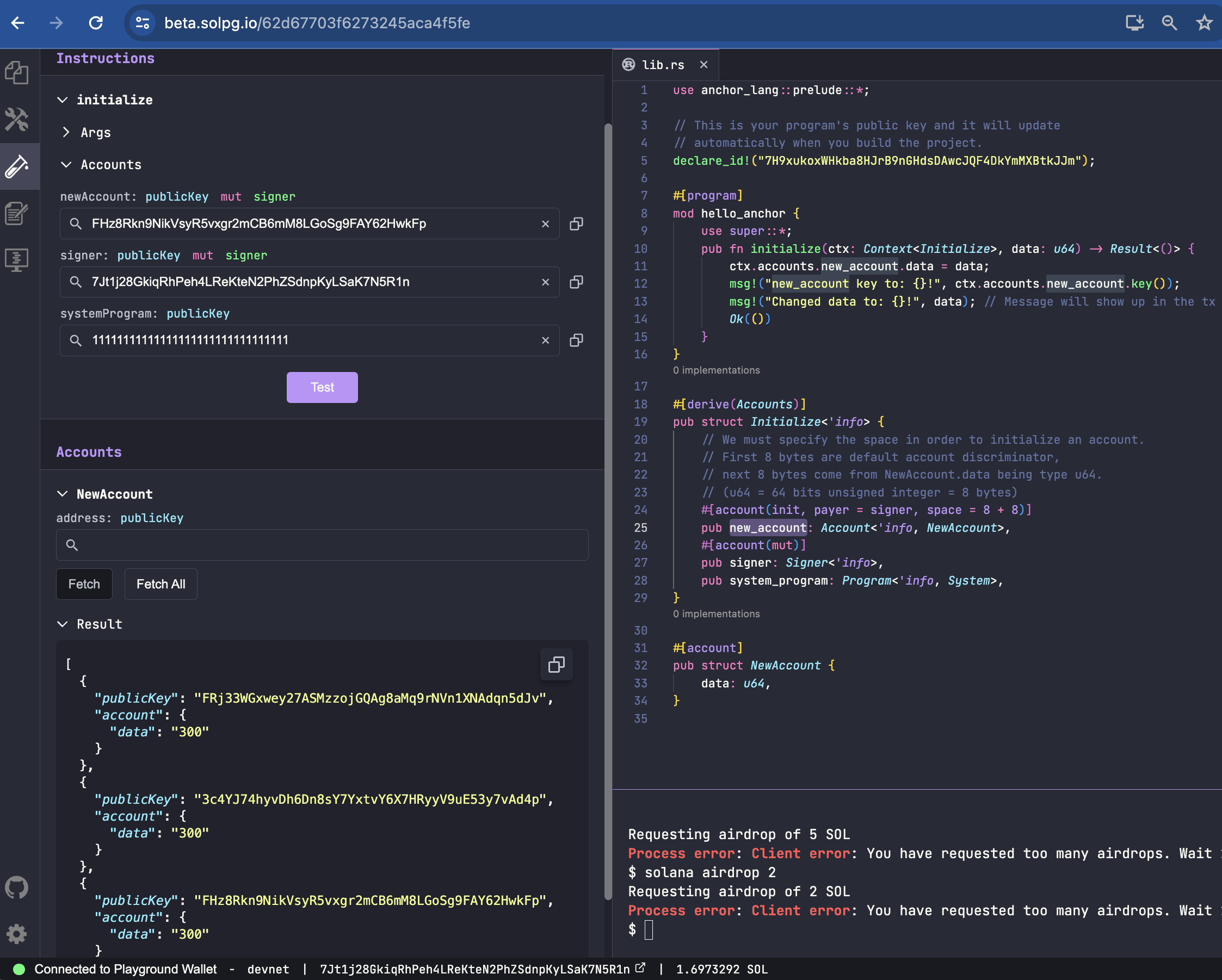I play this https://beta.solpg.io/62d67703f6273245aca4f5fe example days ago.
Just added more logs inside initialize() instruction.
After invoke initialize() multiple times with different 'new_account' parameter input,
then click 'FetchAll', but, it display all the NewAccount, which is to my surprise.

I suppose that only latest data were stored and old ones be covered or overwrited.Because 'new_account' is just a normal account, not PDA account, and should not alloc new space when accept different 'new_account' address.
So my question is: why doesn't it just store one data copy? How does it work to store all history data?
Another question is, which API does playground used to read out all these data?